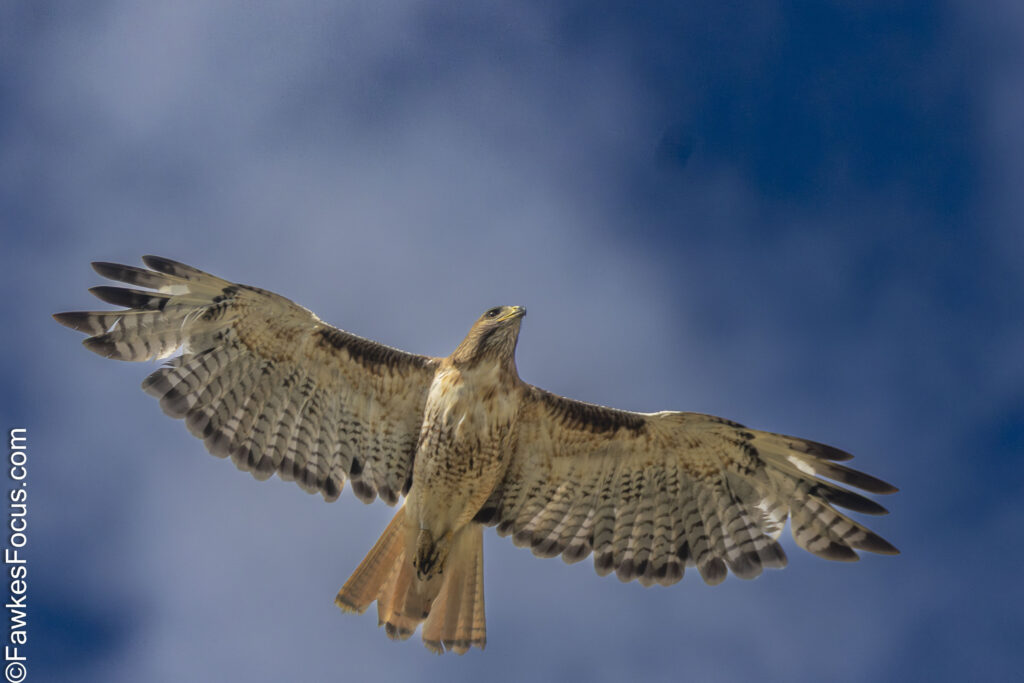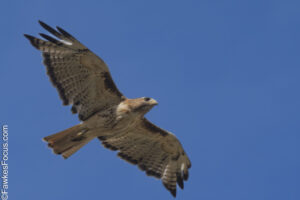Birds of Prey: A Photographer’s Journey
By Mike – Bird Nerd with a Camera
Table of Contents
ToggleBirds of Prey Photo Albums
My First Raptor Encounter
I’ll never forget the first time I saw a red-tailed hawk up close. I was hiking in Cherry Creek State Park when this massive shadow passed overhead. Before I could blink, it dive-bombed into the grass and came up with a squirming rodent. My hands shook so bad the photos were useless, but I was hooked. That’s when I realized – birds of prey don’t care about your photography plans. They’re wild, unpredictable, and absolutely amazing to watch.
That failed photo session taught me my first lesson: raptor photography is equal parts skill, patience, and dumb luck. I’ve spent countless hours since then sitting in fields, hiding behind trees, and getting rained on – all for that one perfect shot. Sometimes I get it. Often I don’t. But every encounter teaches me something new.

Raptor Superpowers (And Why They’re Hard to Photograph)
1. Eagle-Eyed Vision
- A hawk can spot a mouse from 100 feet in the air – that’s like you seeing a french fry on a football field from the top bleachers!
- Photography challenge: They see you before you see them. I’ve learned to move slow and wear earth tones.
2. Silent Owl Flight
- Owl feathers have special edges that make them silent hunters. Nature’s stealth bombers!
- Photography challenge: They move without warning. My camera’s “silent mode” is useless when I yell “WHOA!” every time they take off.
3. Falcon Speed
- Peregrine falcons hit 200+ mph in dives – faster than most sports cars!
- Photography challenge: I use 1/4000 shutter speed and still get blur. These birds laugh at physics.
4. Vulture Stamina
Photography challenge: They love flying directly into the sun. Thanks for the backlighting, guys.
Turkey vultures can soar for hours without flapping – the ultimate energy savers
Behind the Shots: My Biggest Fails & Wins
The One That Got Away
Last spring, I tracked a nesting great horned owl for weeks. Finally got the perfect setup – golden light, clear view. Then… my tripod leg snapped. The owl looked at me like I was an idiot (fair) and flew off. Lesson learned: always check your gear!
My Proudest Moment
After 20 failed attempts, I finally captured a bald eagle snatching a fish. The shot shows every water droplet frozen in mid-air. Secret? I set up near a known fishing spot and waited… for 6 hours. Worth it!
The “That’s Not Food” Incident
Tried to photograph a kestrel eating lunch. Turns out it was a dragonfly… that escaped mid-bite and hit my lens. Nature’s photobomb.
Raptor Photography Tips I Learned the Hard Way
- The Golden Hours Rule
Raptors are most active at dawn and dusk. Also when the light is prettiest. Coincidence? I think not. - Dress for Success
Wear clothes that don’t rustle. That nylon jacket? Sounds like a snack wrapper to a hawk. - Respect the Birds
I never disturb nests or hunting birds. Getting the shot isn’t worth stressing them out. - Embrace the Blurry
For every sharp photo, I have 50 blurry ones. It’s part of the process!
Meet the Raptors
Red-Shouldered Hawks
- Cool fact: They’re chatterboxes! Their loud “kee-aah” calls echo through woods.
- My story: Photographed one eating a snake. Snake was still wriggling. Nature is metal.
Barn Owls
- Cool fact: Their heart-shaped faces act like satellite dishes for sound.
- My story: Found one roosting in an old barn. It hissed at me like a angry tea kettle.
Ospreys
- Cool fact: They have reversible outer toes to grip fish better. Nature’s fishing gloves!
- My story: Watched one plunge into a lake and come up empty… 12 times in a row. Persistence!
Cooper’s Hawks
- Cool fact: They’re bird specialists – other birds freak out when they appear.
- My story: Caught one mid-strike at my backyard feeder. The chickadees still haven’t forgiven me.
Why This Matters
Raptors are more than just photogenic – they’re vital to healthy ecosystems. A single owl family can eat 3,000 rodents in one year! But many species face threats from habitat loss and pollution. That’s why I support [Cornell Lab of Ornithology] – because protecting these amazing birds is more important than any photo.
Join the Adventure
You don’t need fancy gear to appreciate raptors – just go outside and look up! Try these easy starters:
- Scan dead trees along highways (perfect raptor perches)
- Listen for angry crows – they often mob hawks and owls
- Check local birding reports for sightings
And if you get hooked like I did? Welcome to the club! We meet at dawn, bring coffee, and compare blurry photos.
Happy birding,
Mike
FawkesFocus.com




